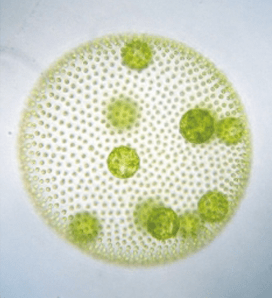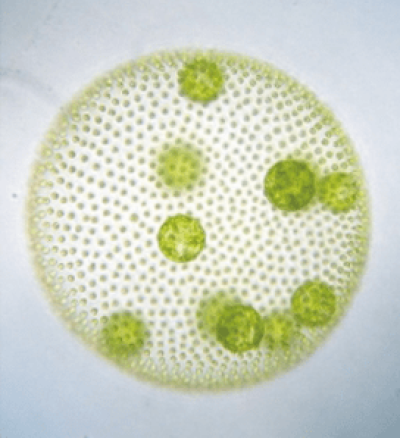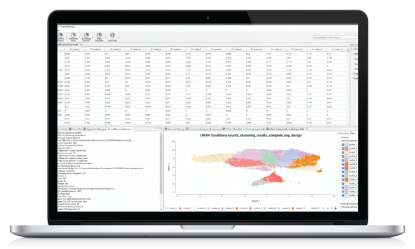Blast2GO Supported Project.
Researchers:
- Mrs.Soulmaz Ekhtari
- Teachers: Dr. Jafar Razeghi, Dr. Karim Hasanpur, and Dr. Arash Kianianmomeni
Background and Project Overview:
The evolutionary origin of some multicellular organisms has not yet been completely studied. A clear characteristic of complex multicellular organisms is germ-soma differentiation.
The monophyletic group of volvocine contains multiple algae species ranging from unicellular species such as Chlamydomonas reinhardtii to the multicellular genus Volvox. The fresh-water, clonal green alga, Volvox carteri composed of about 2000–4000 small, motile somatic cells, which construct a monolayer at the surface of a spheroid, and around 16 much larger, immotile reproductive cells within the surface. The organization of V. carteri is very simple and regular. In the volvocine algae (Volvocales), only V. carteri possess a primary division of labour. The V. carteri provides a good opportunity to investigate the molecular mechanisms of evolutionary transition from unicellularity to multicellularity in the eukaryotic world.
In this study, the RNA-seq approach was employed to investigate the transcriptome profiling of two separated cell types of V.carteri.

Volvox carteri is a species of colonial green algae that forms large spherical colonies (up to 1.5 mm)(Image: Wikipedia)
Future Perspectives/Outlook:
RNA-seq analysis of cell type-specific expression data presents an appropriate template for investigating and understanding the mechanisms of transcriptional regulation in cell type-specific expression and germ-soma differentiation in volvocine algae, finally. The findings of this study may give new insights to perceive the specialized roles each of the separation cell-types.
The Contribution of Blast2GO:
Although V. carteri is a model organism, as regards the RNA classification and transcriptome, in general, are poorly annotated in V. carteri. There was an appropriate solution to this problem. Blast2GO is a bioinformatics platform for functional annotation of sequences and the analysis of annotation data. This technology presents rapid and simple biological insights. Indeed, Blast2GO is an ideal platform for functional annotation of DEGs in the model or non-model organisms.
With the use of Blast2GO PRO tools, facility and fast operation in this project, we are going to do functional annotation of DEGs in cell-type-specific gene expression between separated reproductive and somatic cells in the asexual life cycle of V. carteri.
Gene Ontology (GO) functional enrichment analysis provided biological terms to identify gene products from three perspectives: cellular components (CC), biological processes (BP), and molecular functions (MF).
Research Centers: Biological Sciences at the University of Tabriz
The department of biological sciences at the University of Tabriz was first established in 1966 and soon later in 1969 was divided into two departments of Animal and Plant Sciences. The Plant Sciences Department includes four MSc courses, i.e. Plant Developmental Biology, Plant Systematic and Ecology, Plant Physiology and Molecular and Cellular Biology. In recent years, the Department of Plant Sciences has been quite endeavored extensively to extend its research activities by bringing enhanced facilities into the department. For example, the Department has managed to establish a PhD course in plant physiology in 2002 and plant developmental biology in 2012. Therefore, The Department of Plant and Cellular Biology attempts to make scientific works have led this department to have a small contribution to science production.



